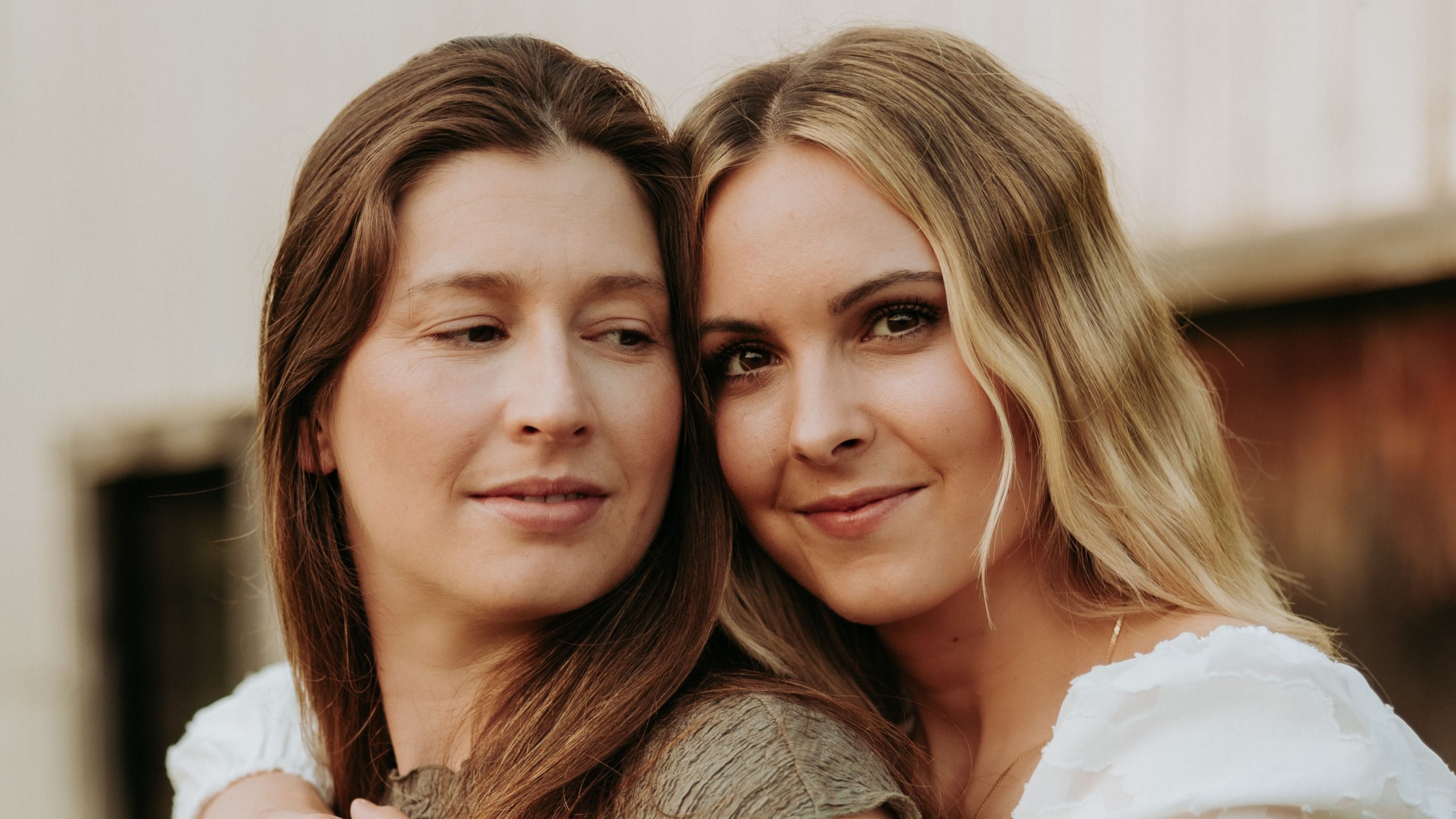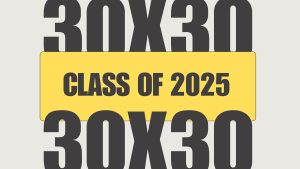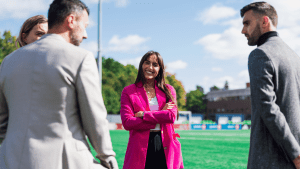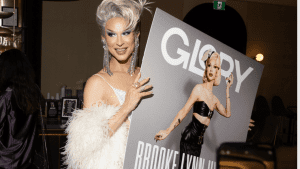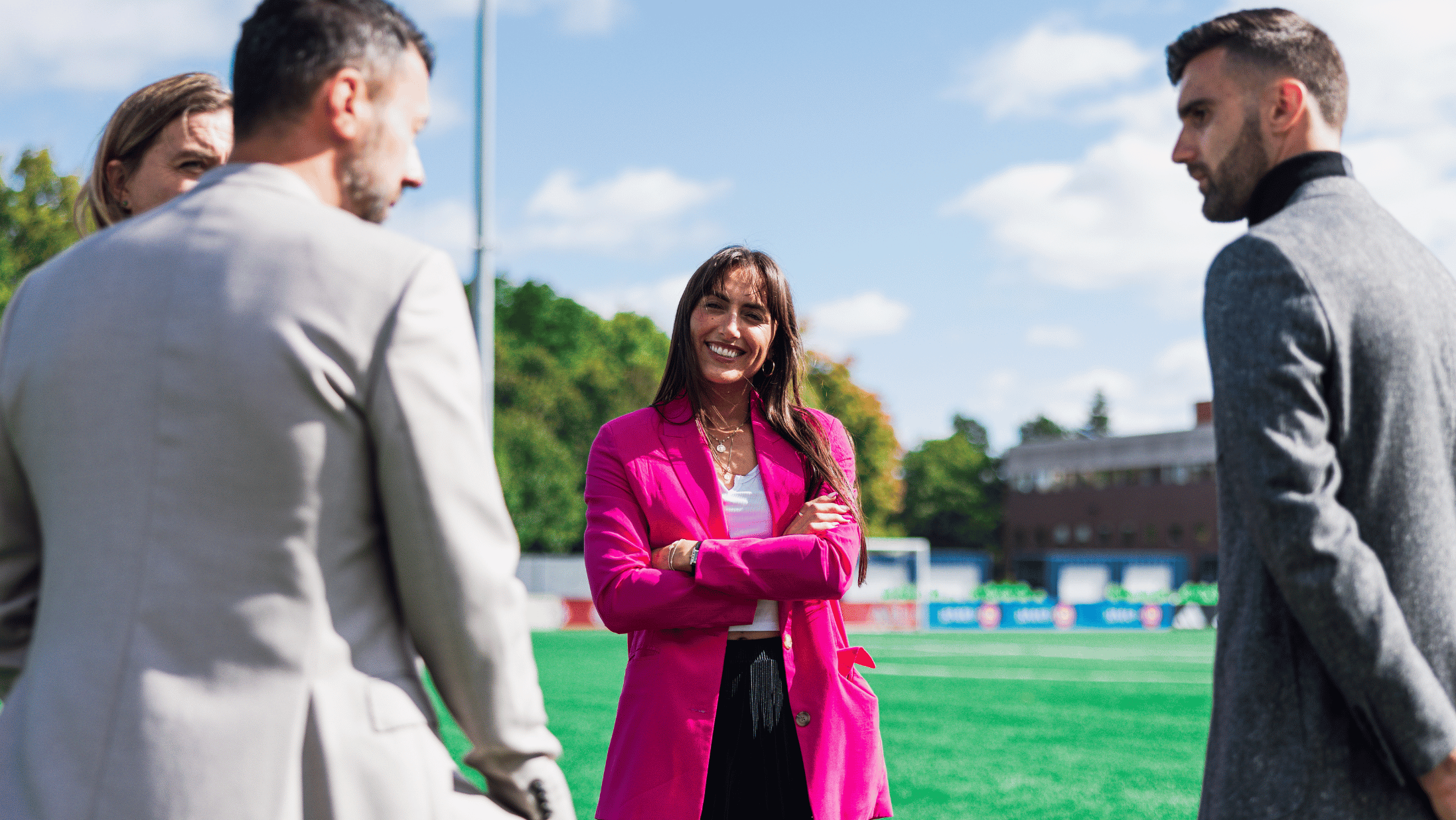In the high-stakes world of professional hockey, Emerance Maschmeyer and Geneviève Lacasse share a story that uniquely sets them apart from their contemporaries. Both elite goaltenders with careers that span the highs of international competition (both were part of Canada’s national team) and the grit of the newly launched Professional Women’s Hockey League (PWHL), they’ve faced it all. But off the ice, they’ve built a partnership that’s as formidable as their game-day personas. Navigating the pressures of elite sport, national team selections, and the rollercoaster of wins and losses, Maschmeyer and Lacasse are redefining what it means to be a power couple in modern sports.
Speaking at the inaugural GLORY Sports Summit, the dynamic duo break down the art of balancing competition with connection, advice for aspiring athletes, and what it really takes to succeed at the highest level—together. It’s a story of ambition, loyalty, and self-discovery.
Listen to the conversation or continue reading below.


Photography by Josianne Deschatelets
When we think about power couples, you both truly embody what it means to be a dynamic duo. For context, can you share a bit about your journey as a couple in professional hockey and how you’ve navigated your careers together
Emerance Maschmeyer: We started dating in 2015 when we were both playing with Team Canada. That was my first year on the national team and Geneviève’s third. We played together at multiple world championships, but we never made it to the Olympics at the same time. It was an interesting dynamic, especially as goalies competing for ice time.
Geneviève Lacasse: Yeah, not only were we on the same team, but we were also vying for the same starting position as goaltenders, which made things really interesting. But we managed to leave hockey at the rink—home was home.
Emerance Maschmeyer: We never brought it home. Never. Now, Geneviève’s retired. She just retired this season and is working for the league.
Geneviève Lacasse: I’m in corporate sponsorship sales with the PWHL. It was a nice transition from being a player. I did my MBA while playing and networked as much as I could, but I never really had time to start another career until now. Hockey opened the door to this new chapter for me.
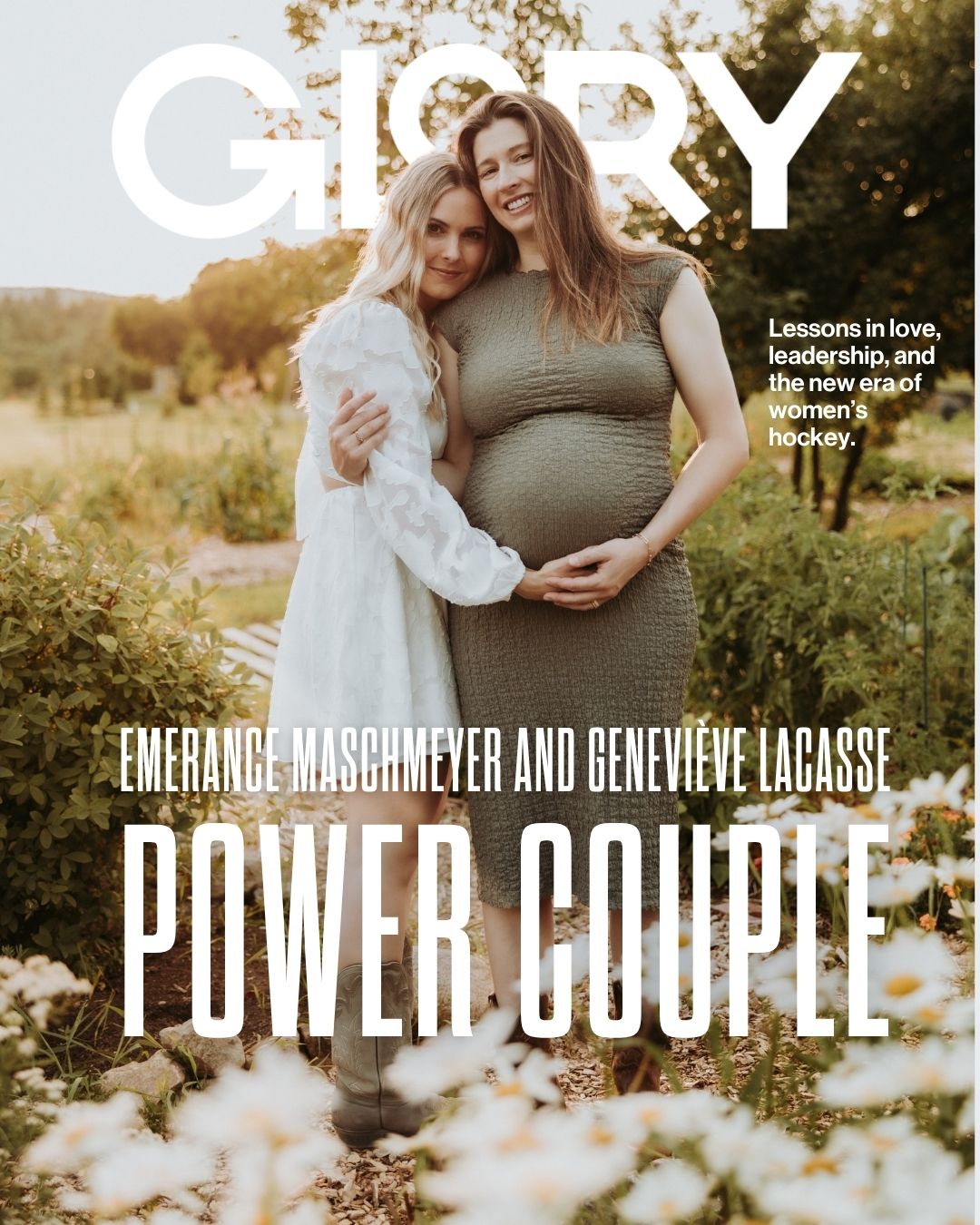

It’s such a unique path you’ve both taken. How have your skills and strengths complemented each other throughout this journey?
Geneviève Lacasse: I’m more spontaneous—not that Emerance isn’t fun—but I’m usually the one who’d leave late for practice and maybe miss a training session. Having Emerance in my life was like magic for my hockey career. She’d make sure we left 20 minutes earlier than I would’ve, and she kept track of our schedule. I’m not sure what I brought to the table for her…
Emerance Maschmeyer: Let me think… No, I’m kidding! [Laughs] You’ve been a great balance for me. I’m very type A—planning everything out. You slow me down and remind me to live in the moment, which I sometimes miss when I’m so goal-driven. You’ve helped me enjoy the process and brought a fresh perspective, especially now that you’re viewing things from slightly outside the rink.
Emerance, this year we saw the inaugural PWHL season. What did it mean for you, and how has it contributed to your growth as an athlete and leader?
Emerance Maschmeyer: It’s been incredible. We heard our first games were sold out, and I wondered if that would be just a one-time thing, but no—almost every game was packed. Having the support and investment behind us is amazing. Now we have the resources to just show up and focus on being hockey players. I didn’t think I’d ever experience this level of professionalism so late in my career. I feel like I haven’t peaked yet.
Can you share what the support systems are like now compared to before? What did you have to handle on your own?
Emerance Maschmeyer: Simple things like equipment management, getting skates sharpened, or even taking your gear home after every practice. As a goalie, that’s a lot of stuff! We were doing our own planning, finding our own rehab, therapy, and paying out of pocket for things like goalie coaches. Now, with full support, we can just focus on our game.
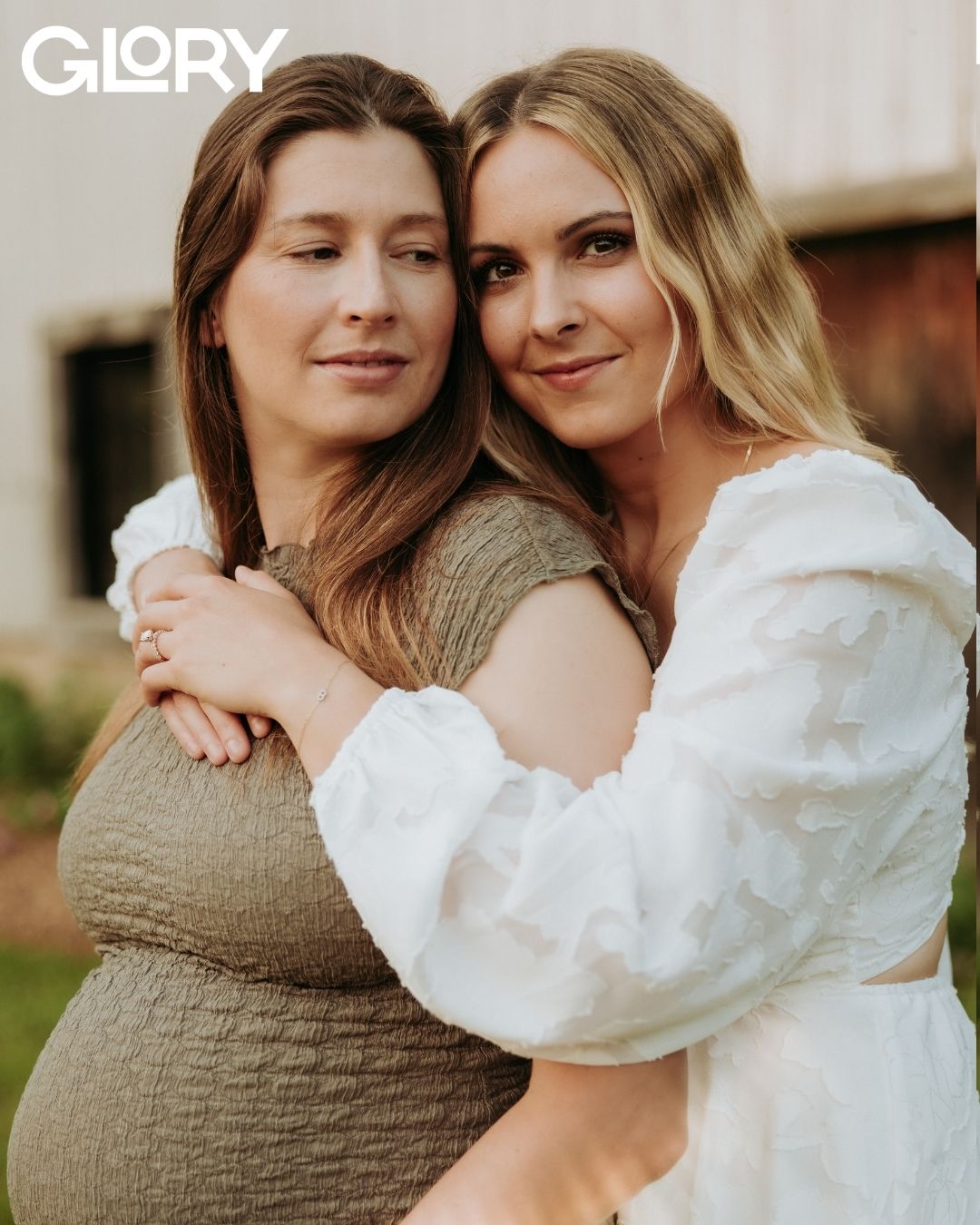

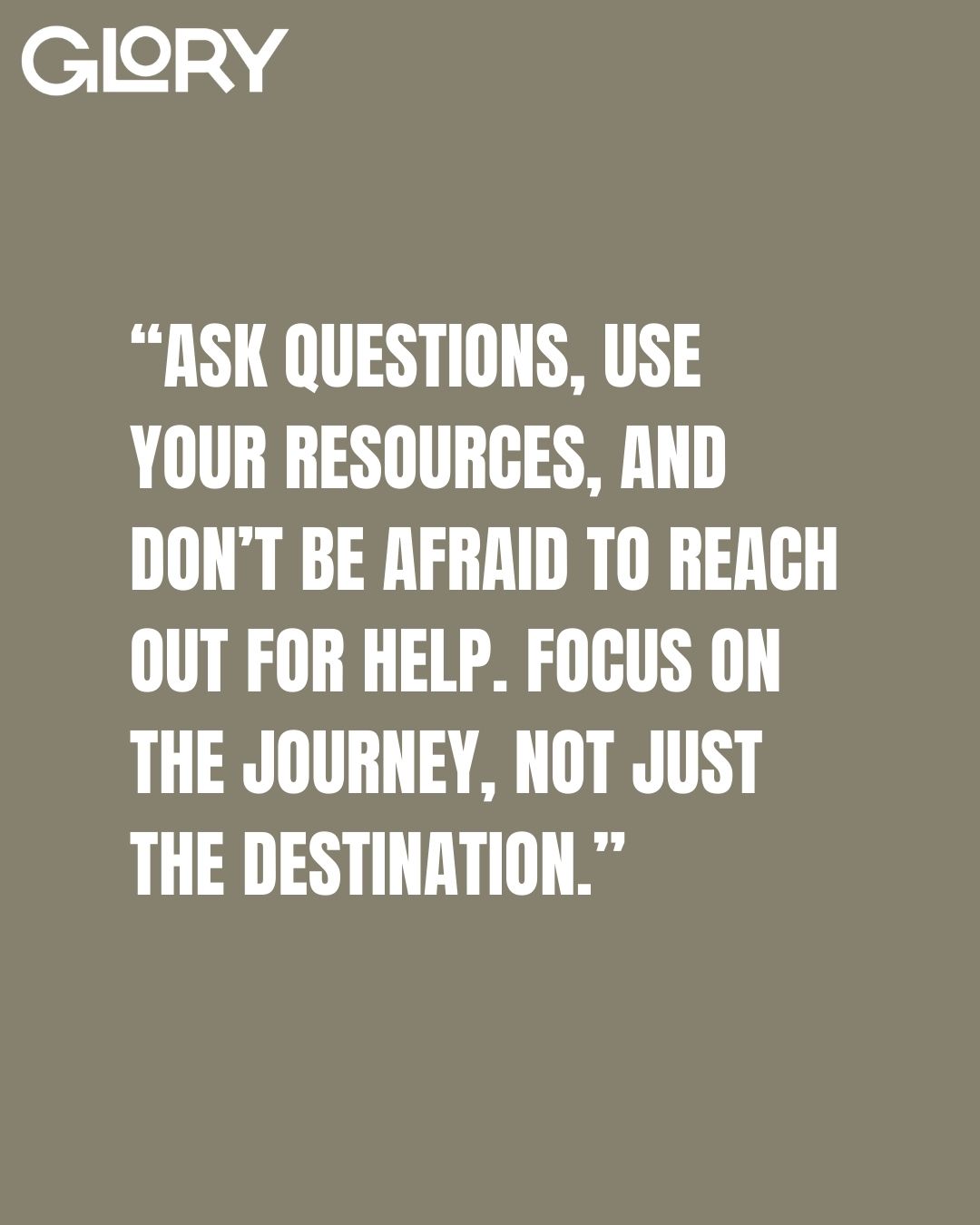

Geneviève, you’ve transitioned from being a player to working within the league. What was that transition like, and how did you find fulfillment in your new role?
Geneviève Lacasse: It wasn’t the smoothest transition. I’d been on the national team since 2012, and getting cut from the 2022 Olympic team was devastating. I felt lost, but with Emerance’s support, I focused on rebuilding myself—physically and mentally. I took time off, volunteered, networked, and spoke to other retired teammates who advised me not to rush into anything. I eventually played one more season on my own terms, which was the most fun I’ve ever had. Now, I’m with the PWHL working in sponsorship sales, and it feels like everything came together at the right time.
You both alternated between who made the national team. Emerance, you were cut from the 2018 Olympics, while Geneviève was on it, and then the roles reversed in 2022. How did that impact you both, and how did you support each other through those tough times?
Emerance Maschmeyer: It was a journey. In 2018, we were a younger couple and didn’t handle it well. We kind of ignored it and avoided tough conversations. We were in survival mode—Geneviève was living her Olympic dream, and I moved to Montreal to distance myself from the team. We didn’t talk about it much. But in 2022, when the roles reversed, we had those difficult conversations. We got therapists, learned how to communicate, and supported each other. We learned so much about ourselves and our relationship—it’s set us up well for the future.
Geneviève Lacasse: Yeah, and during the COVID years, we really worked on ourselves and our relationship. We put in the effort to come out stronger, and I think that’s helped us handle challenges better now.
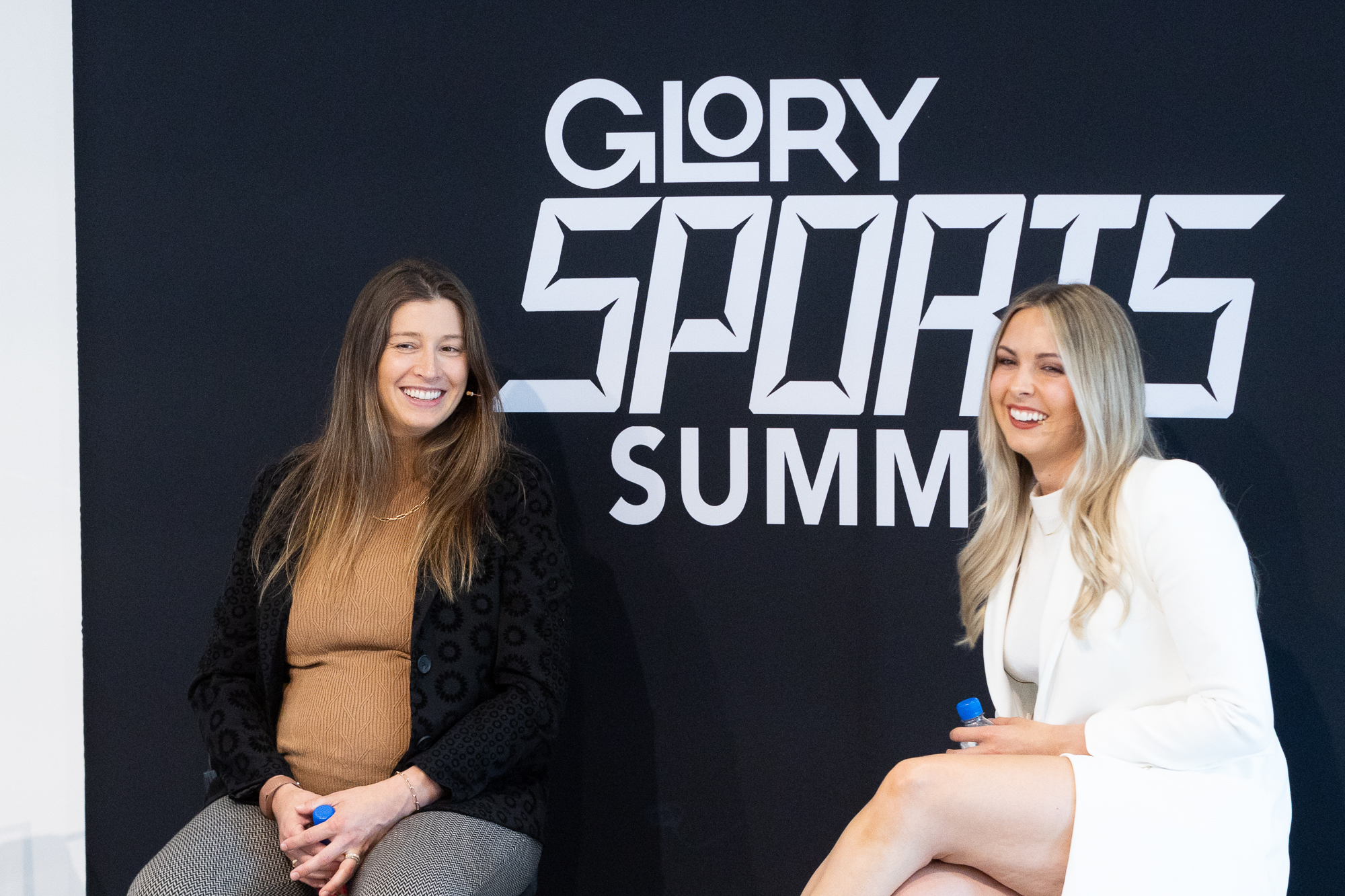

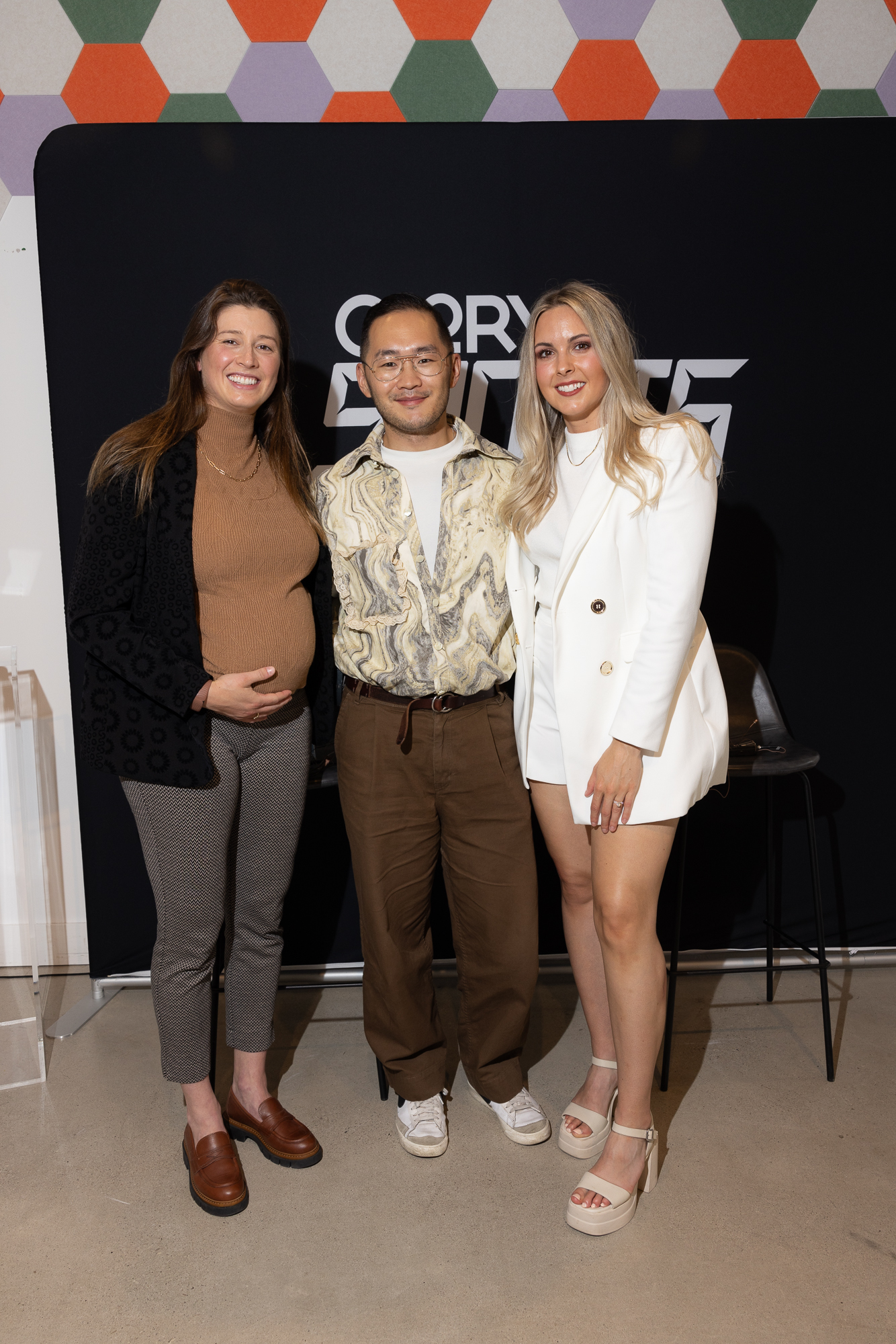

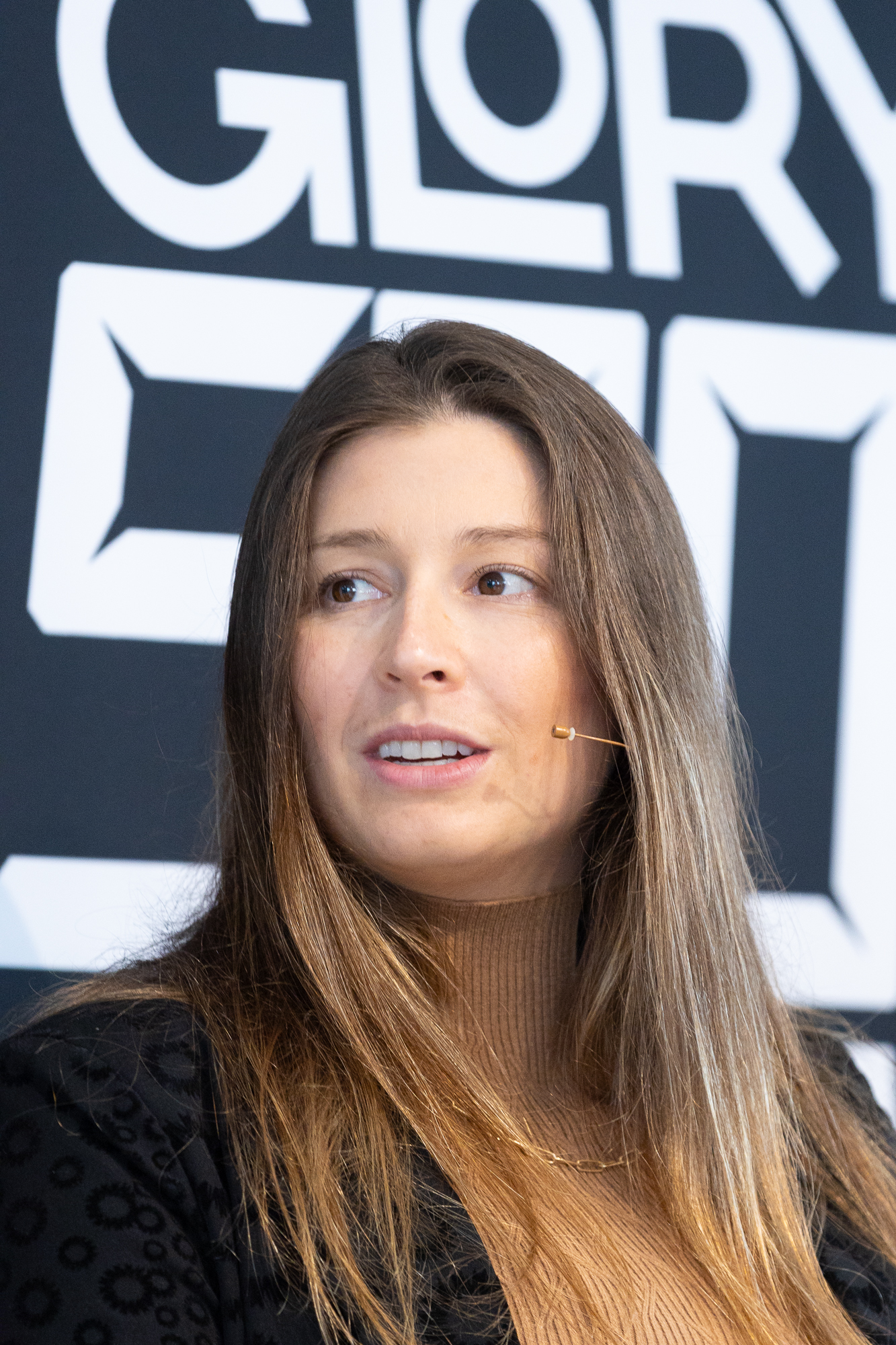

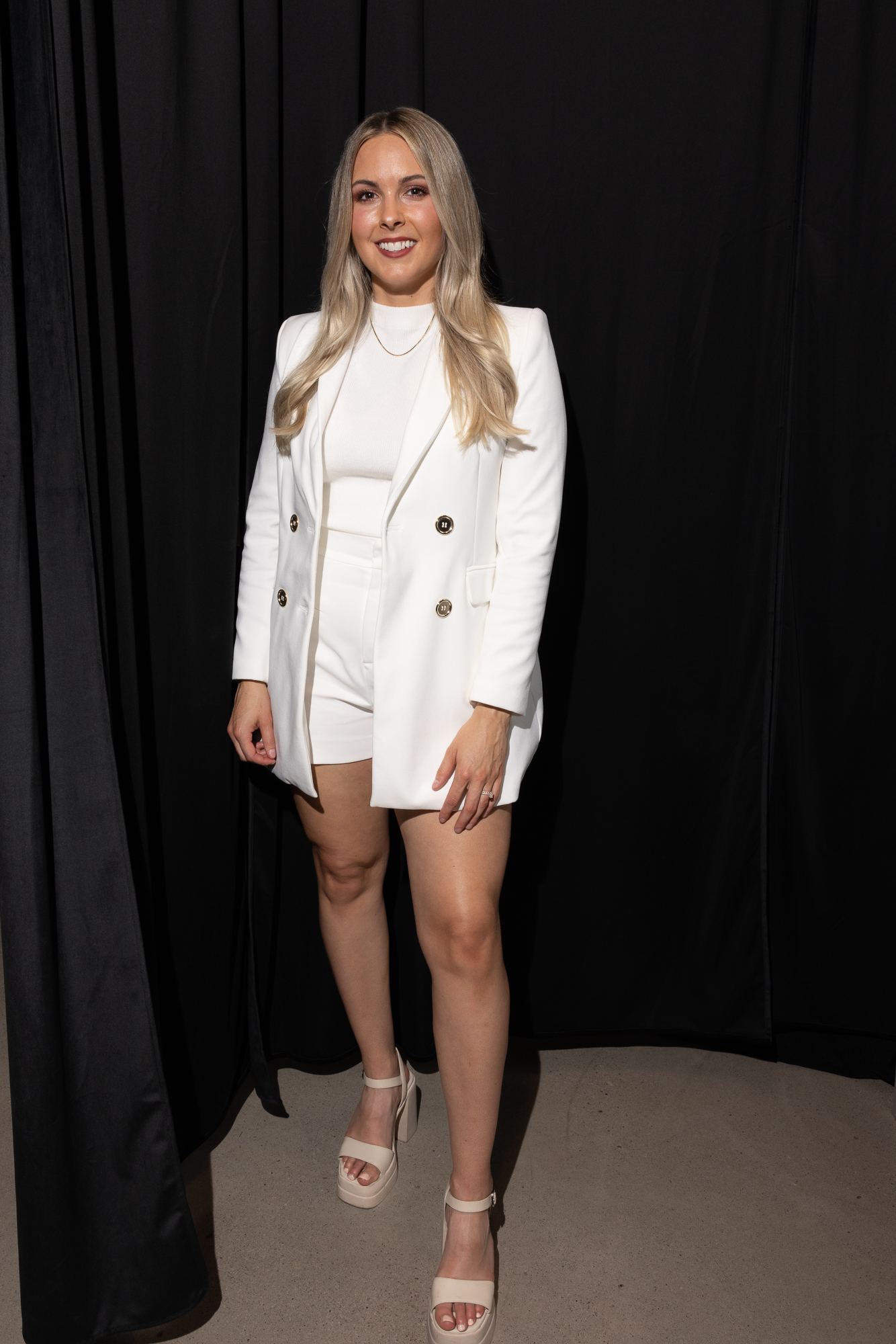

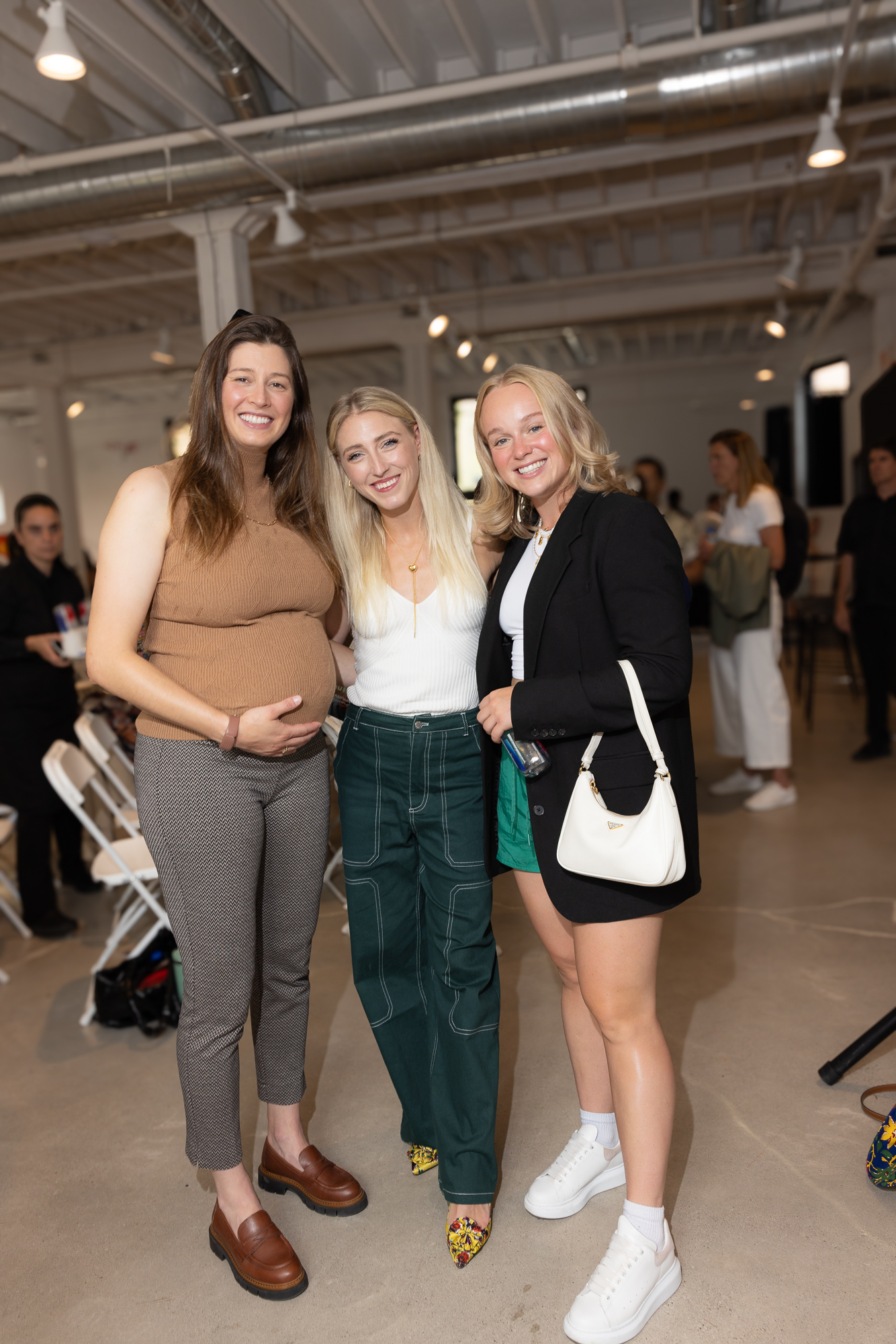

Fast forward to this past year; it’s been quite a whirlwind for you both. You got married, the inaugural PWHL season started, you found out you were pregnant, and then won another world championship—no big deal. What has been a major takeaway for you both over the last 10 to 12 months?
Emerance Maschmeyer: Oh my gosh, where do we even begin?
Geneviève Lacasse: We bought a house!
Emerance Maschmeyer: And we’re renovating while expecting—great timing! Honestly, I think the biggest takeaway has been enjoying the process. There’s been so much change in our lives, but it’s all been wonderful change. We’ve been wanting these things for so long, and now they’ve all come at once. We feel really fortunate that it’s all aligned. We’re embracing the unknown and the [discomfort] of it all, but we’re having an absolute blast.
Geneviève Lacasse: We were trying to figure out if we should start the fertility process or not. We didn’t know where we were going to live; I didn’t fully have a job yet, and we weren’t sure where Emerance would be playing or even if the league would happen. At one point, we just decided to go for it and said, “We’ll figure it out.” We thought about how our parents were 20 years old when they had us, and we felt like we were a bit more prepared than they were at that age. It’s been a bit of letting go and just going with it.
Retiring from hockey also helped. As an athlete, you’re so focused on your sport that you put everything else on hold—buying a house, starting a family. But once I stepped away, it opened up our world a little more and brought more balance to our lives, which I think has also helped Emerance’s hockey.
Emerance Maschmeyer: And I’m sure our baby will add even more balance!


Emerance, for those working with youth and young athletes, what advice would you give to those aspiring to make it in professional sports?
Emerance Maschmeyer: Enjoy the process. It all goes so fast, and there’s so much you can learn when you hit those bumps in the road. The best part is the journey and the people you meet along the way. So ask questions, use your resources, and don’t be afraid to reach out for help. Focus on the journey, not just the destination.
That’s so important—utilizing your community and being open to asking for opportunities. The worst that can happen is you stay where you are, but the best is that you could open up a whole new universe of opportunities.
Emerance Maschmeyer: Exactly. Often, when you’re young, you want to present that you have it all together, but the truth is you’re still learning. The people you look up to were once in your shoes. It’s okay to be humble and ask for help, and if you’re in a position of experience, be open to offering that guidance.
Geneviève, what would be your best advice for those pursuing careers in the business side of sports?
Geneviève Lacasse: Network and talk to people. There are so many different roles within sports, and you have to figure out what excites you. For instance, I didn’t know what happened on game days until this year when I worked behind the scenes with the PWHL Ottawa team. It was eye-opening to see all the different roles and how many people are involved in making a game day happen.
How do you both hope to make an impact in sports, especially for the next generation of athletes?
Emerance Maschmeyer: Up until this season, I was so focused on my performance. Now, I’m exploring social media and connecting with my community online. That has been a really rewarding experience. We didn’t really tell our story [as a couple] until we got married. We had a hard launch and came out by saying we were married and had been dating for eight years. But we didn’t want that to be at the forefront of our identities; we wanted to be athletes, first. Today, sharing our relationship publicly has allowed us to help so many people, especially within the LGBTQ community. It’s been incredibly rewarding, and I’m excited to see how we can continue to make an impact off the ice.
Geneviève Lacasse: From a business perspective, working in sports partnerships has been a game changer. This year, we’ve built partnerships that haven’t been seen in women’s sports before, like our collaboration with Barbie. It’s about mixing brands, players, and the league in ways that have a real community impact.
This interview has been edited and condensed for clarity.


